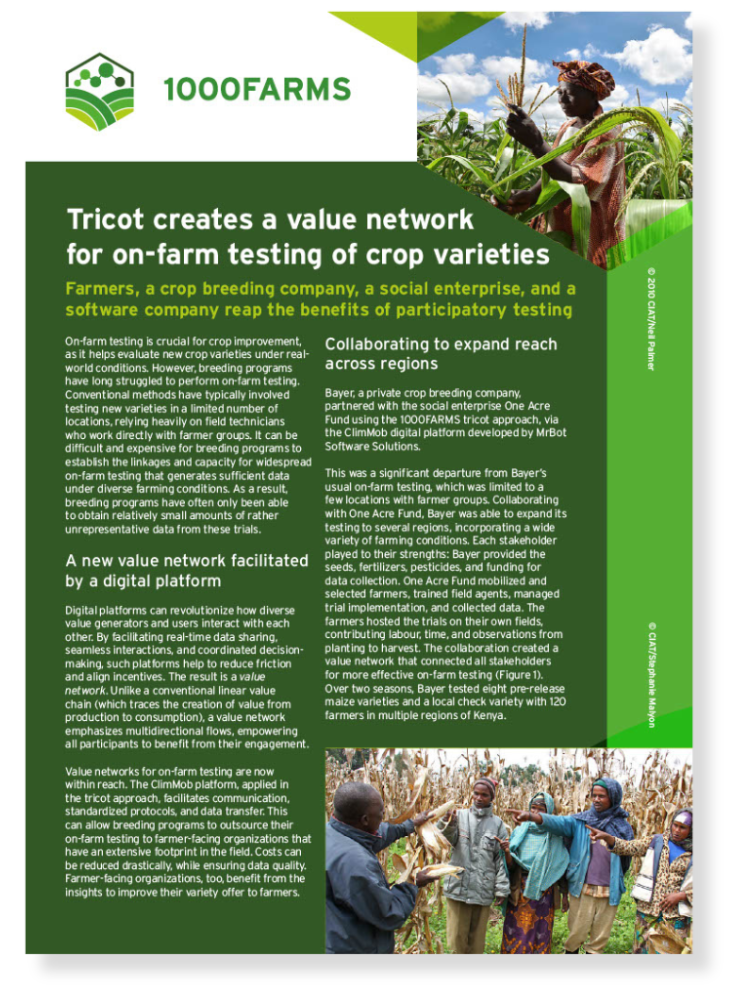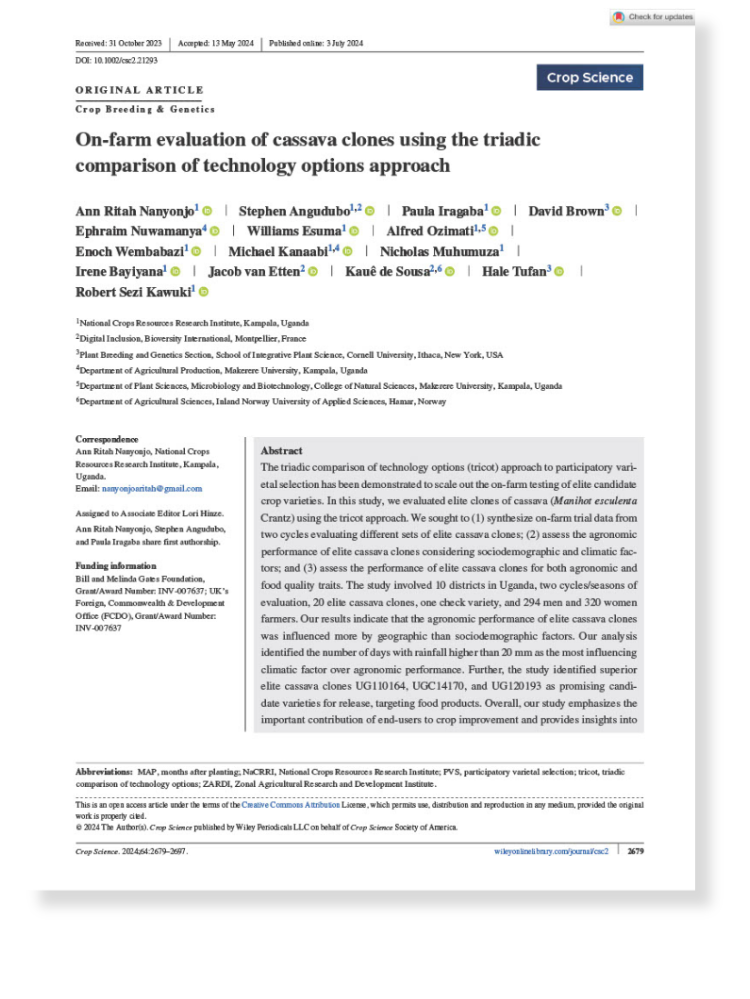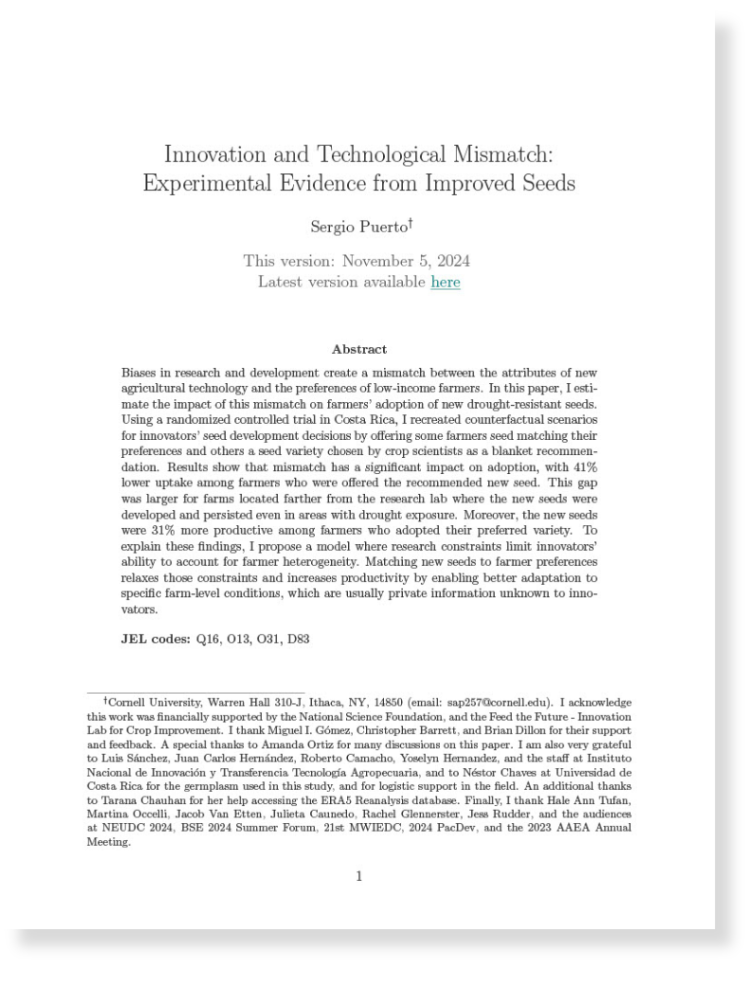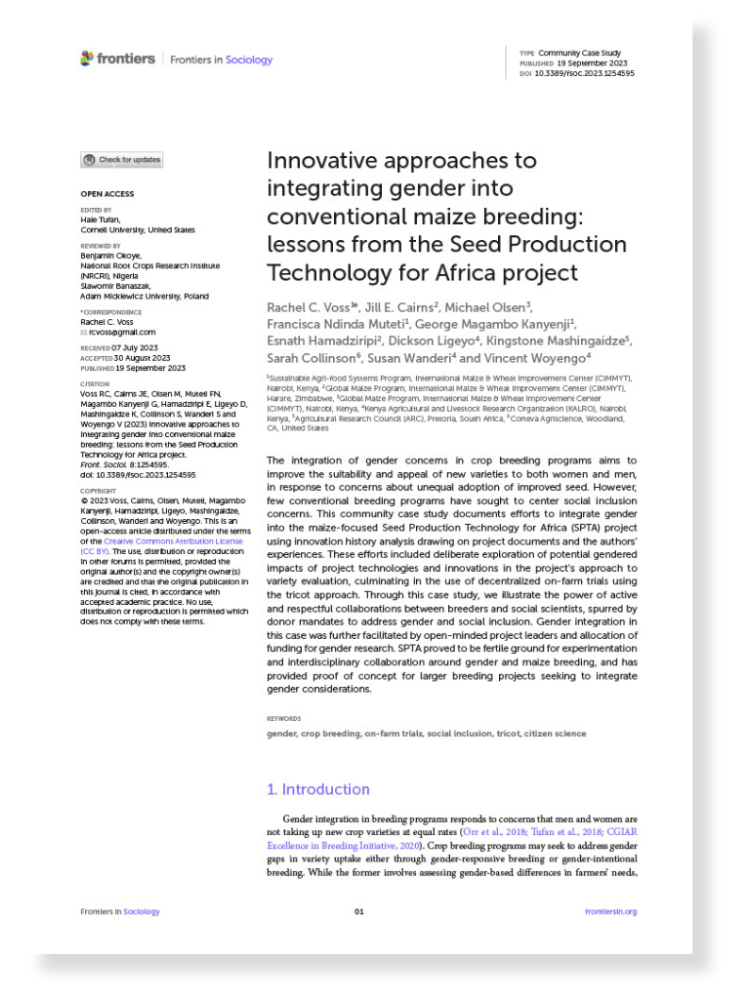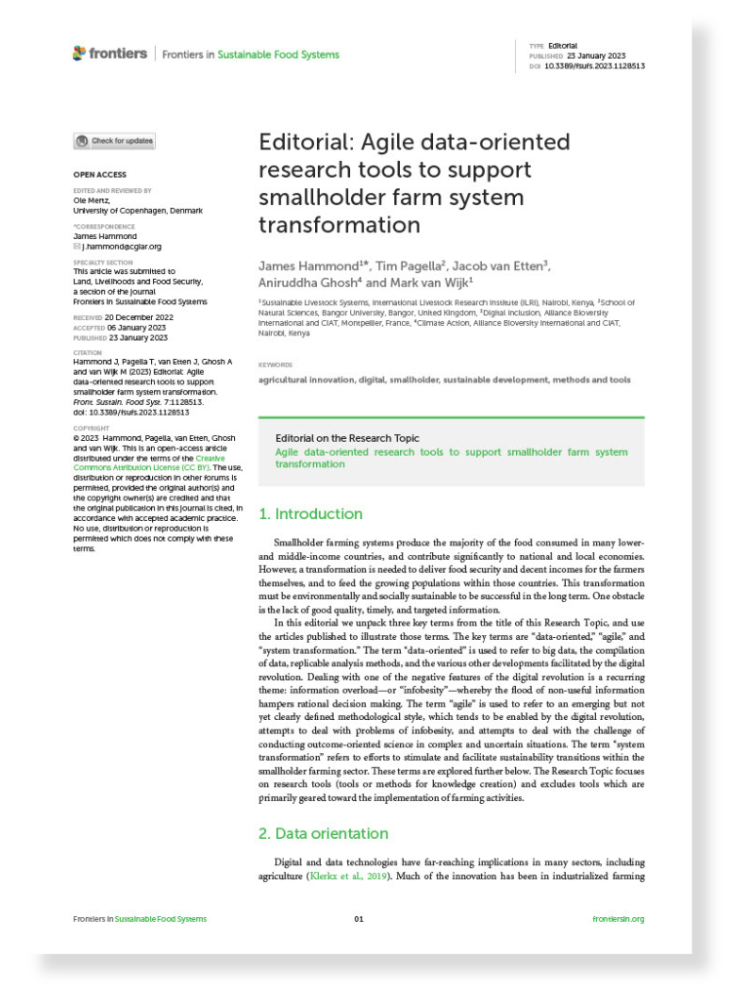This activity focuses on investing in multi-crop on-farm trial (OFT) networks that demonstrate the potential to scale OFTs.
Firstly, the scoping study builds a baseline for multi-crop OFT networks covering potential return on investment, capacity, and the regulatory environment. Available studies show that tricot can reduce costs per data point and provides data that more accurately predict adoption. The scoping study generates insights into the potential for public‒private institutional arrangements, arrangements to share costs and data, and the possibilities of reaching economies of scale.
The project will then set up a multi-crop OFT network in the country. Investment will be limited to breeding networks that incorporate a multi-crop breeding focus, to encourage efficiencies and economies of scale, as well as consolidating efforts and technologies across multiple breeding lines in contiguous geographies.
CGIAR-NARES breeding networks that demonstrate clear synergies with other breeding networks (either by crop or by geography) will be prioritized, especially if they are able to demonstrate upfront any cost or labour savings anticipated by the synergy.
Profits will serve further investment in the future. The activity’s investments will mobilize additional public and private investments, and the team will actively engage stakeholders to achieve this.
Discover more with these resources
On-farm testing is crucial for crop improvement, as it helps evaluate new crop varieties under real-world conditions. However, breeding programs have long struggled, resulting in relatively small amounts of rather unrepresentative data from these trials. Value networks for on-farm testing are now within reach, thanks to digital platforms, like the ClimMob platform applied in the tricot approach, which revolutionize real-time data sharing, seamless interactions, and coordinated decision-making: reducing costs and improving insights. This can allow breeding programs to outsource their on-farm testing to farmer-facing organizations that have an extensive footprint in the field. This flyer explores some of the stakeholders who have benefited from participatory testing.
This study from Crop Science emphasizes the important contribution of end-users to crop improvement and provides insights into the use of the tricot on-farm testing methodology to evaluate elite cassava clones during cassava variety development in Uganda, which can be used to support decision-making for variety release.
The paper uses tricot to show strong econometric evidence for the mismatch between breeders’ and farmers’ perceptions of variety performance.
The paper forms part of the research topic Gender-Intentional Breeding Case Studies and argues that tricot provides insights in gender differentiated preferences that previously used approaches to on-farm testing failed to capture.
This editorial unpacks three key terms “data-oriented,” “agile,” and “systems transformation” of the research topic: “Agile data-oriented research tools to support smallholder farm system transformation”, which focuses on research tools (tools or methods for knowledge creation) and excludes tools which are primarily geared toward the implementation of farming activities.
Discover more about our other activity areas
Data collection | Variety performance analysis | Inform product management | ClimMob platform integration | 1000FARMS course

